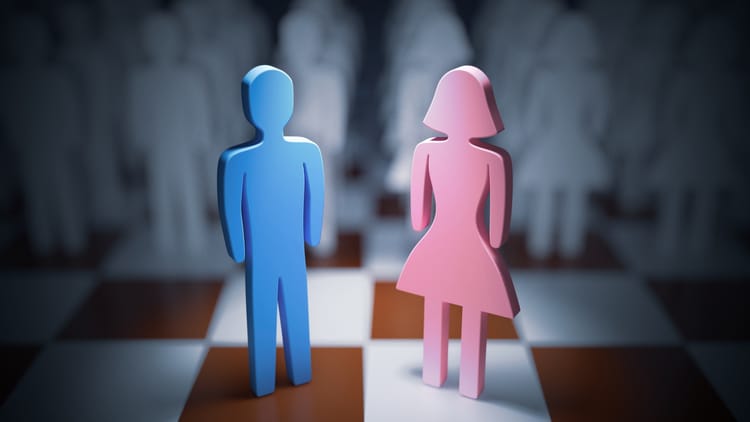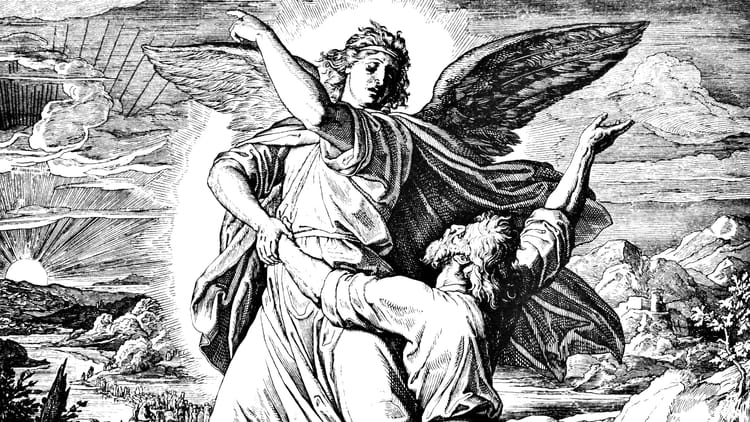And God Created Woman (Genesis 2:18-25)

Most of us have shared two common reactions to the opposite sex: appreciation and frustration. There are times that we are so appreciative that God created the opposite sex. It’s a gift from God, and we’re so grateful that he did it that way. But let’s be honest: aren’t there times that you wonder what God was thinking when he created the opposite sex? There are mysteries and joys and frustrations as we try to get along with one another.
Sometimes the gender differences are pretty minor. But other times, there are some very serious issues. In society, we’ve changed how we view women, but gender is still an issue that’s debated all over the place. In our churches, one of the best ways to start an argument is to raise the issue of gender and leadership. It’s all over the place, and it’s hard to find much agreement. That’s not even getting to the personal level in which our gender affects our families and our closest relationships.
The Bible has a lot to say about gender. We’ve been looking at Genesis the past few weeks, at the earliest account of the creation of this world. We have a before and after picture that tells us a little more about God’s intention for us as it relates to gender.
Before
God had created everything and had pronounced it good. He looked at everything and said, “Good, good, good.” But then he got to Adam, and he said something different. Genesis 2:18 says, “It is not good for the man to be alone.” It was the first time that God saw anything that he didn’t think was good.
There was something missing in only having one gender. This may be in the “duh” level of Biblical insights, but it’s there. There was a part of humanity that was missing. Man alone is not enough; he’s lacking something. God has to step in and provide what he is missing.
So we read what happened:
And the LORD God said, “It is not good for the man to be alone. I will make a companion who will help him.” So the LORD God formed from the soil every kind of animal and bird. He brought them to Adam to see what he would call them, and Adam chose a name for each one. He gave names to all the livestock, birds, and wild animals. But still there was no companion suitable for him. (Genesis 2:18-20)
This was probably a bit of a frustration for Adam. He looked at all the animals, and still realized that he was alone despite having them. There was nobody else who corresponded to him, nobody else who bears the image of God.
I don’t think God thought that Adam might find a companion among the animals. It’s probably more likely that God wanted Adam to realize what he didn’t have before giving him what he really needed. God was about to solve the problem of Adam being alone. He doesn’t want to squander his gift on someone who’s going to be unappreciative.
The First Woman
In Genesis 2:21-22. we read the only full account of the creation of woman found in any of the literature of the Ancient Near East: “So the LORD God caused Adam to fall into a deep sleep. He took one of Adam’s ribs and closed up the place from which he had taken it. Then the LORD God made a woman from the rib and brought her to Adam.”
So here we have the first woman. And you have to love how Adam reacted when he saw the first woman: “‘At last!’ Adam exclaimed. ‘She is part of my own flesh and bone! She will be called ‘woman,’ because she was taken out of a man.'” I see great joy and relief in Adam’s reaction to seeing Eve. He immediately recognized that she supplied something that he was lacking, and that she reflected and complemented him. You see both sides: she was like him, but she was different in a way that complemented him. This was exactly what Adam needed.
This passage is so familiar to a lot of people that we need to take a step back and look at what it says and doesn’t say. First, let’s look at what it doesn’t say. It in no way implies that women are inferior to men or subordinate to them. God said in verse 18 something like this, depending on your translation: “I will make a helper suitable for him.” A lot of people have taken that word helper and thought that it implies inferiority. In English, the word helper can imply a lower status. That is not the case in Hebrew, the language in which this text was first written. In fact, this word for helper was only used nineteen times in what we call the Old Testament. Sixteen of those nineteen times, it was used of God. Helper does not mean lower.
Some others have talked about the fact that Adam named her woman in this passage, stating that naming is a function of authority. Adam does name Eve, but not here. Here, he only recognizes that she belongs to the same category as he does. He names her after the Fall, when everything was thrown off balance, but here there is no naming. There is only recognition and appreciation.
What Genesis does say about the female gender is this: males are incomplete without them. Women provide something that men lack. At a time in which it was generally believed that only kings were made in God’s image, the Bible states that not only all men but also all women are made in God’s image. Women, like men, bear the image of God and reflect him in some way. That is a radically high view of women. Not only are they necessary, and not only do they bring what man lacks, but they also fully bear the image of God. This is revolutionary even today. It was certainly revolutionary back then.
The First Marriage
The account of the creation of the first woman reads like a marriage ceremony, with God as the attendant presenting the first woman to the first man. It not only describes the wedding, but it also leaves this story as an archetype for us. In some sense, their story is our story: “This explains why a man leaves his father and mother and is joined to his wife, and the two are united into one” (Genesis 2:24).
This passage isn’t saying that all of us need to get married, or that you’re not as complete if you remain single. Far from it. But it does teach us something about the value of marriage. When a man and a woman marry, it’s because they see that they are related to each other in some way. They look at one another and see that they are the same flesh, the same blood, and that they need each other. Marriage is valued because men and women really do need each other.
Fast Forward
We obviously don’t live where Adam and Eve lived. Their situation is very different from our situation. There are all kinds of gender battles today, which lead to all kinds of conflicts and hurts. Many of us could speak about them at length. You get a hint of that at the end of this chapter: “Now, although Adam and his wife were both naked, neither of them felt any shame” (Genesis 2:25).
Do you know what this verse was saying? When God created us, there was a sense in which we were safe with each other. There was no vulnerability, and there was no need to protect ourselves from each other. By the next chapter, we’re going to see that this falls apart. When sin entered the world, Adam and Eve no longer felt safe around each other. We’re living with the consequences of that today.
God is building a Kingdom today. He’s undoing the damage that was brought into the world by sin. One of the battles that he’s ending is the gender battle. I don’t want to solve every question about gender today, and I couldn’t if I tried. But I do know that the Kingdom is about recognizing the value that both men and women have before God. It’s about recognizing the fact that in Christ, there is “no male or female” (Galatians 3:28). In Christ, the gender battle is over.
We’re not fully there yet, but we can be a church community in which it is safe to be male or female. We can recognize the necessary partnership that exists between the sexes, and we can realize how tragic it is to have one gender without the other. We can be a church that recognizes the image of God in one another, and that takes joy in what God can do in all of us.
One of our deepest challenges is to recognize God’s image in the person that we might not appreciate. If you’re married, there are times that you look at your spouse and you can’t see anything good in them. You may even be right. It may be miserable to be married to that individual. But part of your calling is to recognize the image of God in that person. It’s there. It’s your calling to see it. That doesn’t solve every problem, and there might be other issues to work through, but most of us can see our spouses as image-bearers and gifts. That goes a long way.
I want to pray today that God would allow us to be a church in which we can recognize and celebrate the image of God in all of us, whether male or female, and that we can be a church that celebrates the gift of gender.





